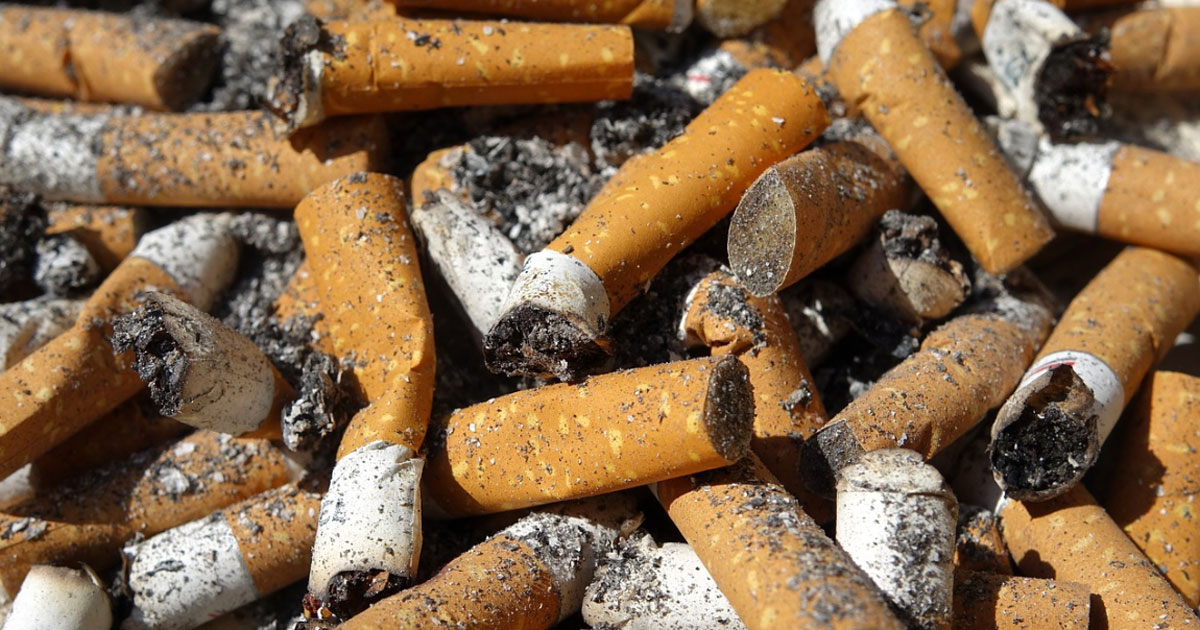Smokers in Singapore are getting fingered for contributing a significant amount of cigarette butt trash to public beaches here, CNA reported on June 22, 2019.
The piece said cigarette butts are one of the most common litter found on Singapore beaches -- a trend consistently similar to coastlines around the world -- calling attention to both the scale of the problem and the flippancy of the litterers.
However, there has been inadequate public attention on this form of littering, owing to cigarette butts appearing inconspicuous compared to other more visible wastes, such as straws and foam bits, that have been hogging headlines.
Coastal clean-up data
N Sivasothi, a senior lecturer at the National University of Singapore’s (NUS) Department of Biological Sciences, was quoted extensively for the piece.
His credentials include conducting volunteer clean-ups along Singapore’s waterways and coastlines.
He oversees the Singapore segment of the International Coastal Cleanup, a global clean-up exercise typically held on the third Saturday of September each year.
In 2018, 20,915 cigarette butts were found during the International Coastal Cleanup in Singapore.
This is close to double the 10,885 straws and stirrers found and definitely more than the 12,594 plastic beverage bottles picked up.
These figures are a snapshot in time based on a one-event collection and is nowhere representative, and it is highly dependent on what volunteers are obsessed about picking up from the beach.
But it provides a rough picture of the extent cigarette butts are polluting the waterways, as well as shed light as to why it is happening.
Smoking allowed at beaches here
The defence that cigarette butts on Singapore's coast are floated over from overseas is not compelling for a few reasons.
Firstly, cigarette butts are found on beaches accessible to the public, such as at East Coast or Changi, but cigarette butts are not found at mangrove swamps that are not frequented by the public.
Secondly, publicly-accessible beaches have tossed out cigarette butts, but publicly-inaccessible beaches do not have cigarette butts.
Sivasothi said: “Because people go to the beach and smoke.”
Thirdly, smoking at beaches have not been outlawed in Singapore -- although other countries have.
Why are cigarette butts detrimental to the environment?
The obvious downsides of smoking needs to be said: In purely economic terms of who gains, tobacco companies privatise profits, but socialise harm, which is borne by people and the environment in general.
To talk about pollutants specifically: The filters in cigarette butts are plastic.
They are made up of cellulose acetate, a type of plastic that does not readily biodegrade.
Cigarettes also contain harmful chemicals that can leach out into the environment when absorb moisture -- which they do a lot more readily as they are not like plastic bottles that are hydrophobic.
Cigarettes eventually break down to become microplastics.
Why do smokers throw away cigarette butts casually?
So, why do smokers still litter so easily when they are done sucking on their cancer sticks?
According to a sociological study of littering in Singapore commissioned by NEA in 2009 and quoted by CNA, it is culturally acceptable to flick cigarettes away, because it is a cool and a normal thing to do that is portrayed in the media.
And also, a cigarette butt is perceived as an inconsequential piece of litter that is small enough to ignore and not think twice about.
But if the spotlight is shone on this issue more, the carelessness of cigarette butt disposal will no longer be second nature.
If it is third or fourth nature, that's a win.
For now.
If you like what you read, follow us on Facebook, Instagram, Twitter and Telegram to get the latest updates.
